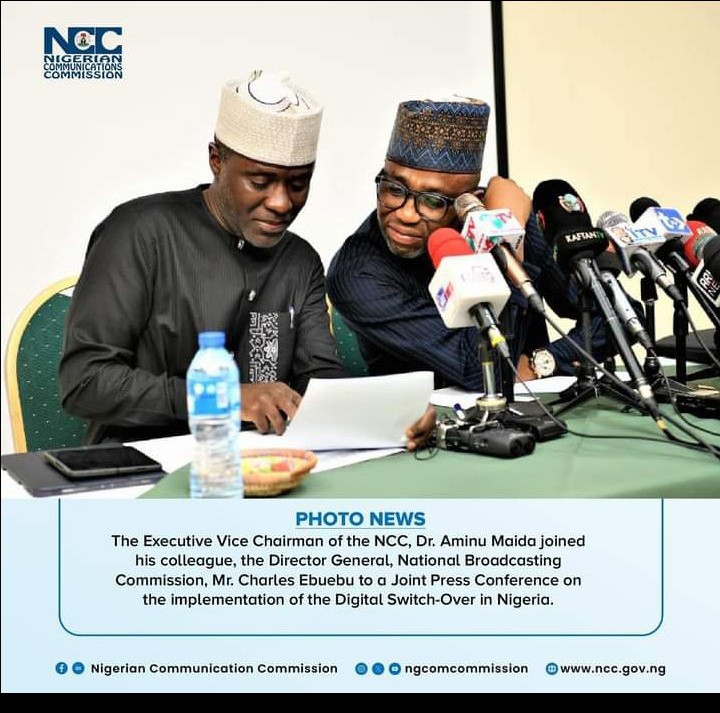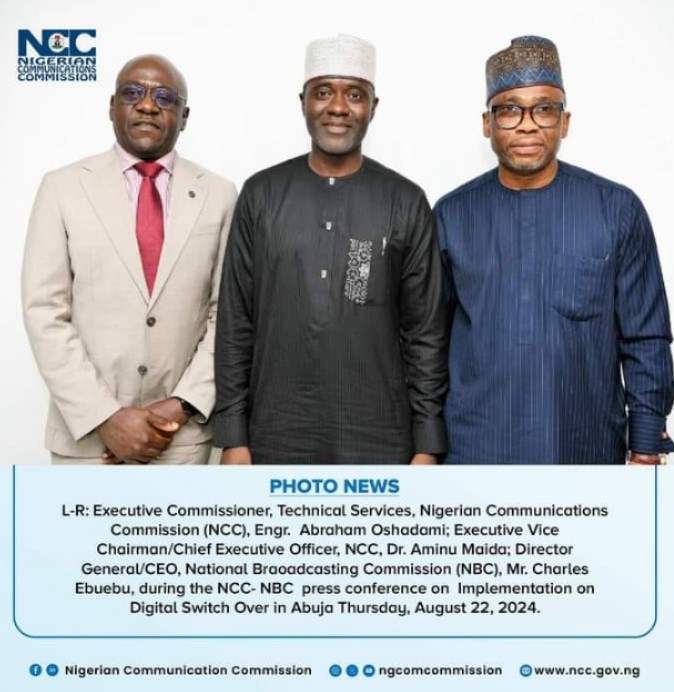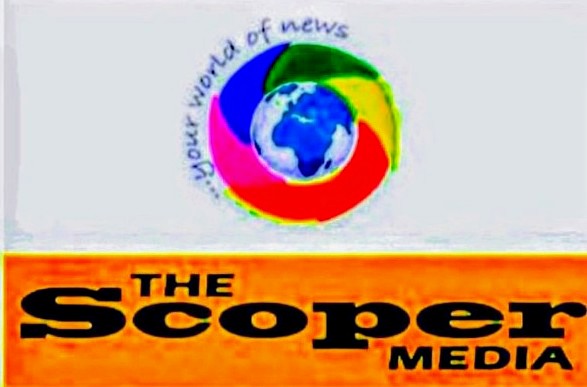
The National Broadcasting Commission (NBC) and the Nigeria Communications Commission (NCC) are joining forces to ensure a smooth and efficient transition to digital broadcasting in Nigeria. This collaboration aims to facilitate a seamless Digital Switch-Over (DSO) process, enhancing the quality and accessibility of broadcast services across the country. By working together, both agencies are committed to driving innovation and ensuring that the benefits of digital broadcasting are fully realized by the Nigerian public.
At a joint press conference held in Abuja, Nigeria’s federal capital, NBC and NCC unveiled significant developments. The announcement, made by both organizations, marks a pivotal moment in the nation’s media and telecommunications landscape.
Charles Ebuebu, the Director General of the NBC, highlighted at the conference that this partnership marks a pivotal step towards the project’s triumph. His remarks underscored the importance of a united and strategic approach, reflecting a concerted effort to achieve success.
He announced that the President had approved a grant designed to propel technological innovation, stimulate economic development, and foster cultural enrichment through the ambitious DSO project.

He maintained as thus, “This intervention is a testament to the visionary leadership of the President. It is a commitment to achieving a future where every Nigerian, regardless of their location, has access to superior broadband services and is included in the digital economy. The funds allotted to this project will be meticulously expended to ensure that each component of the DSO Eco-system contributes significantly to the realization of impactful digital dividends for our country. To accelerate this process, the Commission is in collaboration with the Nigeria Communications Commission (NCC).”
Ebuebe hailed the DSO project as a transformative force for Nigeria’s media and socio-economic landscape. He emphasized that this initiative promises to spark substantial job creation, fuel economic expansion, and broaden the industry’s horizons, positioning it as a pivotal driver of national progress.
“As we stand at this pivotal moment in Nigeria’s broadcasting evolution, it is clear that the Digital Switchover (DSO) represents more than just a technological shift—it is a transformative journey for our media industry and our nation as a whole. Our commitment to this project reflects our dedication to a more inclusive, technologically advanced, and globally competitive media landscape,” he said.
The NBC Director announced a sweeping awareness campaign designed to familiarize everyone with the new regulations governing DSOs. This initiative aims to propel growth in the sector by ensuring that all stakeholders are well-informed and aligned with the latest enabling regulations.
He said, “That’s what we are both collaborating to do here. It’s a converged world right now. We encourage people to adopt new systems, new digital platform, because the ecosystem is huge. We are going with an approach that covers the entire nation all at once, at far less a cost. There was also the fact that there was no nationwide publicity and promotion of the DSO. But we are going to be massively in everybody’s face, telling them about the dividends of the DSO, what it brings to bear.”
NBC has announced the creation of content production studios in various geopolitical zones, collaborating with the Nigerian Television Authority (NTA) and the FreeTV APP. This initiative will feature the development of a sleek mobile app, enabling users to stream FreeTV on their devices and enjoy a range of video-on-demand services.
Dr. Aminu Maida, the Executive Vice Chairman of the Nigeria Communications Commission, asserts that the commission is crucial for maintaining a streamlined and effective regulatory framework. Under his leadership, the commission aims to ensure that communication processes are efficiently managed and regulated to foster progress and innovation within the industry.
Maida maintains as follows, “If we go and create all of this amazing content, and we don’t take into account the fact that the mode of consumption has changed, and the fact that majority of this content is going to be consumed on demand, it’s going to require some level of interaction in real time, which traditional broadcast does not allow then I think we’re not going to be doing justice to the DSO project in a different way.
“We are going to be working very closely together, obviously led by the NBC, we need to provide support and ensure that the communication sector is ready. If we do this right, especially if we get the right content, it is going to lead to a huge explosion in the consumption of data. So the kind of things that the NCC needs is to provide support and to ensure that data is moving within the country.
“We don’t want data to go out and come back in. So we have a role there to play in the NCC. We also have a role there to play in ensuring that the quality of connections, the quality of the signal that people are getting into these internal connected devices is at the right level to support people enjoy this content.”









